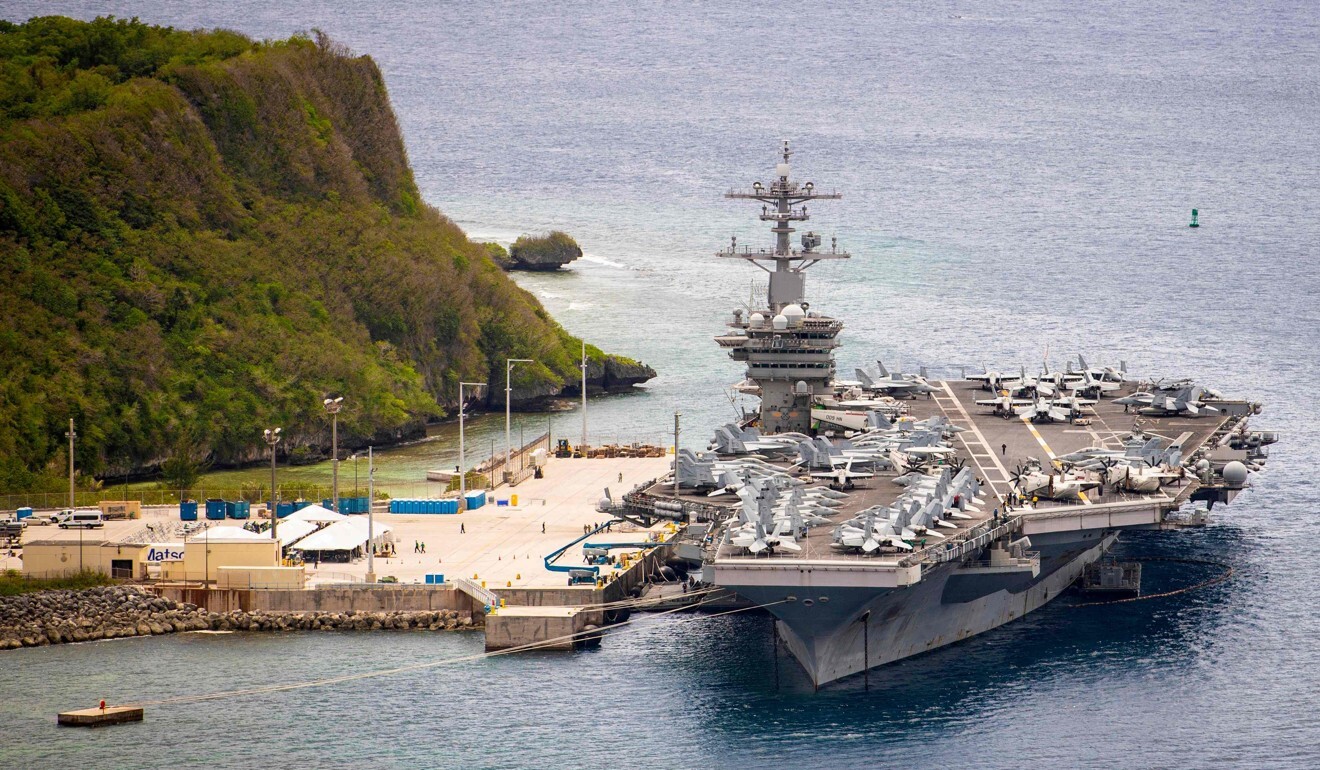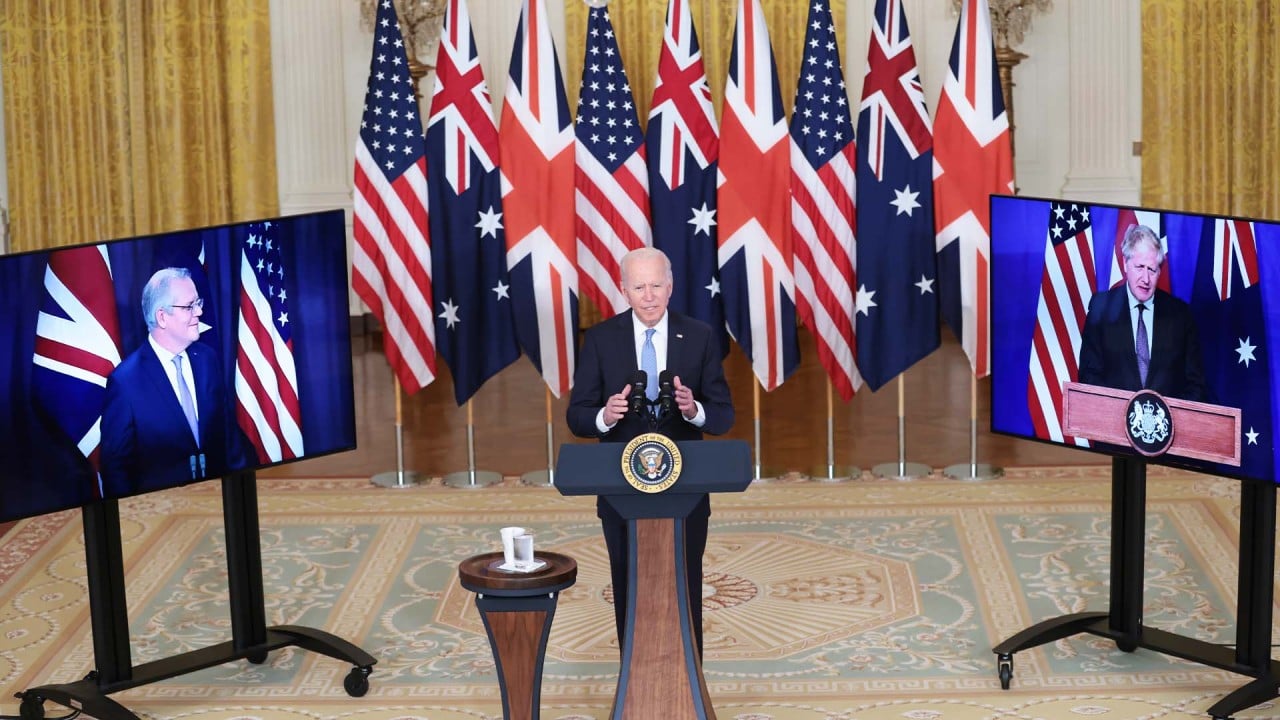
US should give Australia access to operations in Singapore, Guam, Philippines: report
- A new report by Australia’s former consul general in Honolulu calls for greater integration with US forces under a ‘collective deterrence strategy’ aimed at China’s rise
- The suggestion follows the formation of the AUKUS alliance, which includes the two countries and Britain, and will see Australia gain access to nuclear submarine technology
The allies should look at new “combined access arrangements” among a number of ways to strengthen “integrated deterrence” against Beijing’s growing assertiveness in the region, according to the report released by the Sydney-based United States Studies Centre on Friday.
“Greater Australian access to US operating locations in Guam, the Philippines and Singapore could significantly augment the Australian Defence Force’s strategic footprint,” says the report authored by Australia’s former consul general in Honolulu, Jane Hardy.
Washington operates a number of major military installations on Guam, a US territory, and has access to facilities in Singapore and the Philippines under a pair of security pacts.
Washington should also involve Canberra in the early stages of military planning, including contingency scenarios involving “grey-zone tactics or the limited use of force by China”, according to the report.

“The US Coast Guard and Australian Border Force should be brought to a joint planning table to identify ideal modes for combined maritime presence operations,” the report says.
Pacific Island nations uneasy over Aukus deal

03:51
US, UK, Australia announce ‘historic’ military partnership in Pacific
China slammed the grouping as “extremely irresponsible” and a threat to regional stability at its launch, and this week described the alliance as a “product of a cold war mentality and narrow geopolitical concepts”.
Politicians and media in Pacific Island nations, some of which have painful memories of nuclear testing by the US, Britain and France, have also raised concerns.
Last month, the president of Kiribati, a grouping of 33 islands scattered across one of the world’s largest exclusive economic zones, told Australian media he felt disrespected about not being consulted about the submarine plan and had lodged a complaint with Canberra.
James Goldrick, a former two-star rear admiral in the Royal Australian Navy, said plans to boost regional security cooperation needed to “give due weight and attention to the concerns of regional states, particularly those in Southeast Asia”.

